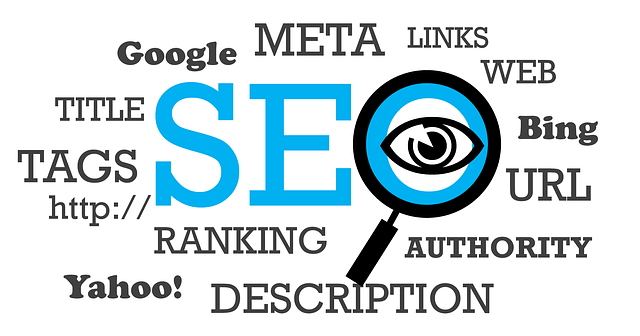
Your website is your voice, and off-page SEO is about how loudly and convincingly that voice resonates through the digital world. It’s the reviews people leave, the articles that mention you, the sites that link back to your content. It’s the trust others place in your brand that is a signal search engines rely on to decide whether or not you deserve to rank.
At Aqva Marketing, we’ve seen it firsthand: businesses with solid off-page SEO consistently outrank better-designed websites with more content. Why? Because search engines don’t just look at what you say, they care deeply about what others have to say about you.
In this beginner’s guide, we’ll demystify off-page SEO and show you how to build real authority beyond your website’s walls, step-by-step, and strategy by strategy.
What Is Off-Page SEO?
Off-page SEO is everything you do outside your website to improve its search engine rankings.
If your website were a product, then on-page SEO is how you design the packaging. But off-page SEO is the word of mouth, brand endorsements, trust signals, and social proof, all happening off the shelf. It’s what convinces Google (and your audience) that your website deserves attention.
Google’s algorithm now favours those sites that have earned the trust of others, and therefore, building authority has become the most important.
Why is Off-Page SEO so Important?
Here’s a stat that’ll make you pause:
According to Moz, off-site SEO-related factors carry more than 50% of the ranking factor weight.
That’s not a minor factor. That’s more than half the battle.
In a digital world flooded with content, backlinks, and brand signals are your proof of credibility. Google uses these cues to separate thought leaders from just another blog.
If you’re serious about SEO (and who isn’t?), then mastering off-page SEO becomes crucial.
The Core Pillars of Off-Page SEO
Let’s break it down. Here are the major components of a solid off-page SEO strategy.
1. Backlinks: The Backbone of Off-Page SEO
Not just any link is going to benefit your website; we’re talking about quality links from relevant, authoritative websites.
“A backlink from Forbes is like getting a shoutout from a celebrity. A link from a shady blog? That’s a back alley deal Google won’t forget.”
Here’s a case study:
Backlinko analyzed 11.8 million search results and found that the #1 result on Google has 3.8x more backlinks than positions #2 to #10. The takeaway? Backlinks = Rankings.
We, at Aqva Marketing, don’t just build backlinks, but we help you build relationships. We tap into influencers, journalists, and communities to get your content linked for all the right reasons.
Tactics that work:
- Guest blogging on niche-relevant platforms
- Building linkable assets like infographics, original studies
- Earning links through digital PR and brand mentions
2. Brand Mentions & Social Signals
You don’t always need a hyperlink. Sometimes, just getting your brand name mentioned does wonders.
Unlinked brand mentions are part of Google’s latent semantic indexing. It understands that if people are talking about you, you’re probably important.
And social media is your reputation amplifier.
Aqva Marketing’s off-page SEO services ensure your content is distributed across LinkedIn, Twitter, Facebook, and Instagram, because visibility isn’t just about being seen on Google.
3. Online Reviews & Reputation Management
Here’s where off-page SEO becomes deeply human. Your reviews on Google, Trustpilot, Yelp, etc., on the one hand, are trust signals to users, and they’re ranking signals to Google as well.
- Local SEO reviews matter a lot.
- E-commerce? Product ratings = higher CTRs = better rankings.
A BrightLocal study found that 87% of consumers read online reviews for local businesses, and review signals are a top factor in local pack rankings.
At Aqva Marketing, we help brands build systems to manage and respond to reviews effectively. That’s brand trust on autopilot.
4. Influencer Marketing & Community Engagement
Modern off-page SEO is also about community trust.
Engaging in forums (like Quora, Reddit), niche communities, or getting shoutouts from micro-influencers is how your brand becomes a topic, not just a site.
It’s soft power. And it works.
When you become a go-to voice in your niche, Google follows suit.
How to Start Off-Page SEO?

Here’s a starter blueprint we recommend to most of our beginner clients at Aqva Marketing:
Step 1: Create High-Quality, Link-Worthy Content
People don’t link to average content. They link to value bombs. Create content worth linking to.
Step 2: Build Relationships
Start small. Connect with industry bloggers. Comment meaningfully. Offer guest posts. Join Facebook or groups in your niche.
Step 3: List Your Website on High-Authority Directories
Start with Google My Business, Yelp, Bing Places, and local/niche directories.
Step 4: Ask for Reviews Strategically
Send follow-up emails after purchases. Incentivize feedback. Use tools like Whitespark or BrightLocal for review management.
Step 5: Track Your Backlinks
Use tools like Ahrefs, SEMrush, or Moz to monitor where your links are coming from and where you’re being ignored.
Off-Page SEO Myths That Beginners Fall For
Let’s bust a few:
- Myth: More backlinks mean better rankings
Truth: Only if those links are relevant and authoritative. - Myth: Social media doesn’t affect SEO
Truth: It does. Indirectly, it boosts visibility, traffic, and mentions. - Myth: Directory submissions are outdated
Truth: High-quality directories still hold value, especially locally.
Off-Page SEO Is a Long Game
You won’t see overnight results. Off-page SEO builds momentum over a period of time. Each link, each mention, each brand interaction adds weight to your authority.
Final Thoughts: Off-Page SEO Is the Trust You Earn
Off-page SEO is about building trust and establishing your authority among your audience, influencers, and Google.
You can tweak meta tags all day. But if no one’s talking about you, linking to you, or engaging with your brand, it means your brand is inconsequential to them.
Need a customized off-page SEO strategy for your business?
Let Aqva Marketing guide you.
